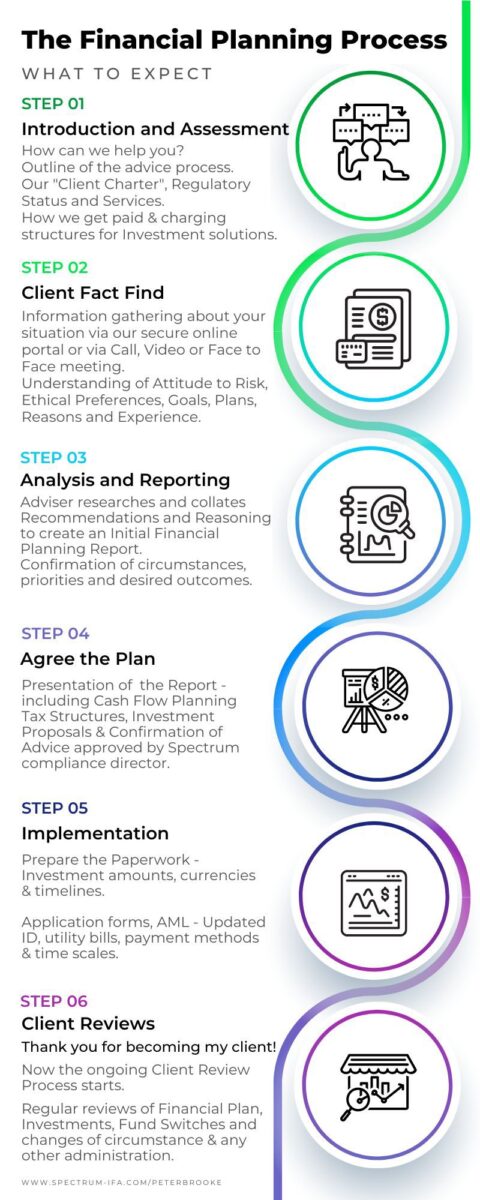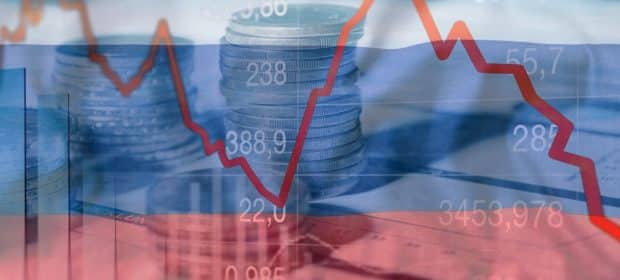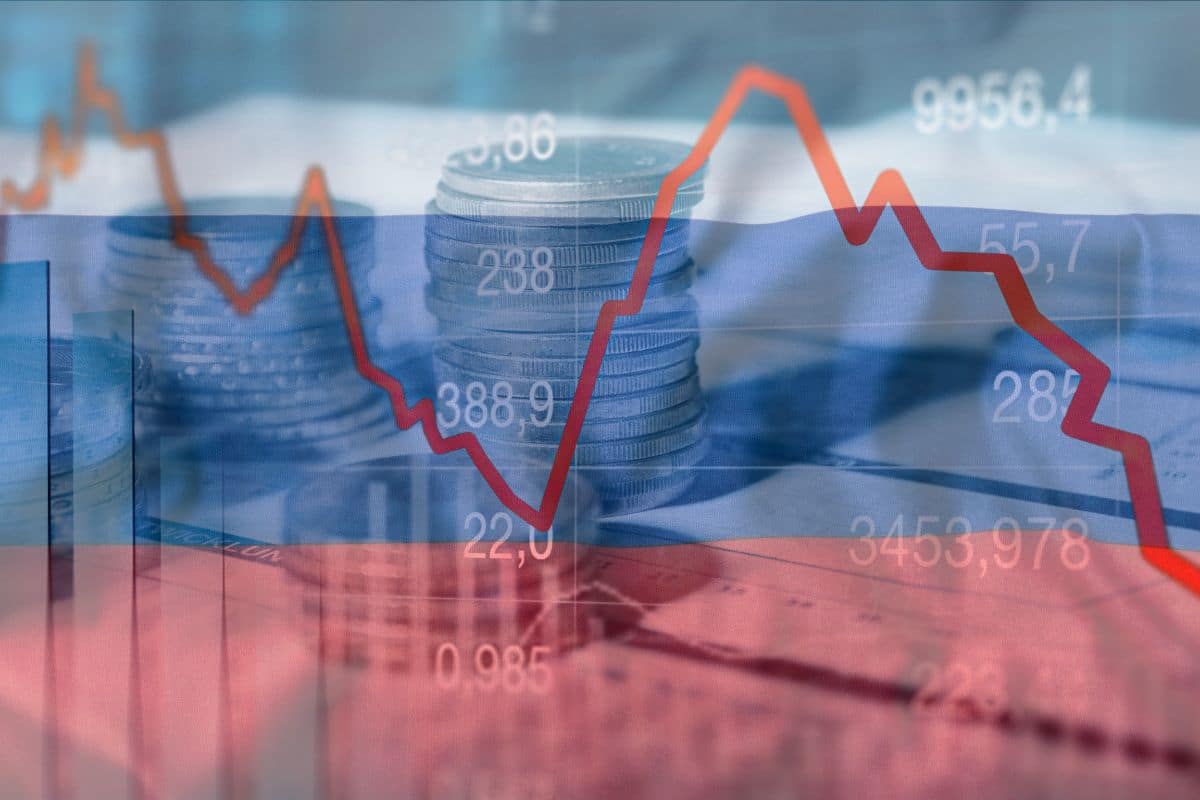Cash flow planning is an exercise which could benefit individuals of any age, be it people just starting out their independent lives or others approaching retirement. Understanding how much money you have and the best way for you to use it is vital, and many seem to underestimate the power of good, constructive planning.
Cash flow planning
By Jozef Spiteri
This article is published on: 13th March 2023

It is important to consider how surplus money can be used more efficiently. Surplus money refers to reserves of cash over and above any emergency fund held in a bank account. How can one use these resources more efficiently? What difference will it make?
Keeping excess funds in cash will result in the value of that money being eroded, as no meaningful growth will be achieved. Therefore, one must find a way to grow this money and protect it against inflation by generating positive real returns.
For many, investing might seem unnecessary, complicated, or risky. Such a mentality is usually the result of misconceptions. The reality is that the current environment is not what our parents or grandparents experienced when growing up; what worked 20 or 30 years ago might not work as well today.
We will now compare three scenarios for the same person. These examples will indicate the level of savings this individual would have at retirement if keeping all savings in cash, investing in a balanced risk portfolio or investing in a more adventurous portfolio.

In this example we have John, an average working man who went to university until age 25 and then worked until age 68. John started off with an average wage at the beginning of his career, with limited income and unable to buy a property or secure a sizeable mortgage. In his late 20’s he then managed to take out a mortgage for his own place. He only started to earn a decent level of income in his early 30’s, and this is the point at which he had to choose between investing this income or saving in cash. Therefore, John had the ability to save and invest for around 35 years prior to retirement. Let us now see what the differences are if he chose to invest or not.
If John left all surplus income in cash, he would reach retirement with a savings pot of €911,186. This means that he will have to plan his cost of living based this amount, together with the lowly public pension he will earn, until he passes away. If John were to spend around €40,000 a year (in today’s money) from his savings in retirement, the money would last him around 22 years. This is assuming that John is only maintaining his lifestyle and not accounting for eventual medical costs which could arise, or other unforeseen expenses. Therefore, what might seem to be a substantial amount of cash does not really give John a lot of ‘wiggle room’.
Let us now consider a balanced risk portfolio for John, starting contributions at age 32. If John were to invest around €20,000 a year until retirement, growing at an average rate of 4% per year, he would accumulate a savings pot of €1,375,757. This would give John an additional €464,571 compared to the scenario where he saved in cash, with the added advantage that the money invested will offer further growth potential during retirement, allowing him to maintain a buffer, further extending the longevity of his funds.
Alternatively, if John were to consider a more adventurous portfolio, with the same level of contributions and years of investment, his eventual savings pot would achieve a value of €1,845,763 – nearly a million euros more than if he chose not to invest at all.
This example highlights the power of compounding returns, and the importance of good financial planning. This is a service we offer all clients and together we can identify the best way to meet your goals. If you would like to discuss your financial future, feel free to get in touch.
The above are simplified examples and for illustrative purposes only. For a more detailed outline of how we implement successful investment strategies, please contact us to arrange an introductory discussion.
Why is now a good time to invest?
By Michael Doyle
This article is published on: 9th March 2023

I have been working with a few clients over the past couple of years who were very nervous about investing for the longer term as the markets had been volatile. Recently they decided to ‘push the button’ after we reviewed their situation together.
So, here are ten reasons why now could be a good time to invest:
1. Economic recovery: The global economy is recovering from the impact of the COVID-19 pandemic, and this presents opportunities for investors to take advantage of growth opportunities in various sectors.
2. Low-interest rates: Interest rates are currently low, which can make borrowing cheaper and provide investors with a chance to invest in assets that are likely to yield higher returns.
3. Inflation protection: Investing in stocks, bonds, and other assets can provide protection against inflation, which can erode the purchasing power of your money over time.
4. Increased savings: Many people have saved more money during the pandemic due to reduced spending on things like travel and entertainment. This has led to an increase in the amount of money available for investment.
5. Technological innovation: The pandemic has accelerated the adoption of new technologies in many industries, and investors can potentially benefit from investing in companies that are at the forefront of innovation.
6. Diversification: A well-diversified portfolio can help investors spread their risk and potentially minimize losses if one sector or asset class underperforms.
7. Long-term focus: Investing is a long-term strategy, and the current market volatility should not deter investors from thinking about the long-term potential of their investments.
8. Behavioural finance: Understanding how emotions and biases can impact investment decisions can help investors avoid making costly mistakes.
9. Education and access: There are many resources available to investors to help them learn about different investment opportunities and strategies, and technology has made it easier than ever to invest from the comfort of your own home.
10. Social responsibility: More investors are looking to make investments that align with their personal values and beliefs, and there are now many options for socially responsible investing that can potentially provide both financial returns and social impact.
Now would be a great time to review your own situation. Either speak with your financial consultant or feel free to contact me for a no obligation review.
Financial updates March 2023
By Katriona Murray-Platon
This article is published on: 8th March 2023

March is always a busy month for me and this month is already looking to be the same thing. Whilst all is quiet on the tax front, for now, I am enjoying the calm before the tax storm to do client reviews and meet new people.
One of the questions that came up this month was to do with wills and power of attorney. I have already written about wills in previous articles and whilst I do not undertake to help people write their will many people find it helpful to have a conversation with me before speaking to a notaire just to fully understand the implications for expats in France. So if you haven’t written a will and have any questions please do get in touch.
When you have assets in the UK and in France it is important to have a UK will and a French will and these should refer to and not repeal or revoke each other. Equally, if you have money paid into a UK account, over which you would need someone to have power of attorney, it is a good idea to have a UK power of attorney for your UK accounts and a French power of attorney for French accounts. Whilst a UK power of attorney is, under The Hague Convention, valid in France, and a French power of attorney is, if properly drafted, legalised and translated, valid in the UK, it would be easier for those close to you, whom you have appointed as your attorney, to have a registered power of attorney in France and in the UK. This will avoid lengthy administration and translation costs. It is best to consult a notaire to make sure that your French power of attorney is properly drafted and will, come the day, be accepted by French banks.

Hopefully you have already had a look at your tax page and declared your property, if not you have until 1st July 2023 to do this. Just to add to the information in last month’s Ezine, if you rent a property you will have to declare the amount of rent. This information will be used to calculate the rental value of the properties in your area and therefore the Taxe Foncière. However you don’t have to declare the rent just yet, you have until July 30 June 2025 until this becomes mandatory.

Finally, as 8th March is International Women’s Day, I wanted to share with you a photo of the lovely ladies who work for or with The Spectrum IFA Group. This photo was taken at our Gala event in Gleneagles. Before officially joining Spectrum I was encouraged to speak to some of the female advisers to find out their experience and it is because of their experience working in Spectrum that I decided to become a financial adviser.
Today I have the great privilege to work with this amazing group of women! In addition to this I have a large and growing number of female clients who I am pleased and proud to advise. Happy Women’s Day to all my female clients! If no one else is spoiling you, please do take the time to do something nice for yourself to celebrate International Women’s Day.
French Tax Returns
By Michael Doyle
This article is published on: 7th March 2023

It’s that time of year again where we all must start thinking about submitting our French tax returns.
Here are my 5 top tips for completing your tax return.
1. Gather all necessary documents: Before you start preparing your tax return, make sure you have all the necessary documents, such as your income statements, receipts for deductible expenses, and proof of any tax credits you may be eligible for, the figures taken from your bank account(s) and the relevant exchange rate(s).
2. Choose the right form: France has different tax forms for different types of taxpayers, so make sure you choose the right one. In general most people will need to declare their income on the main form (2042) and its related forms (2042C and 2042 pro), the 2047 for all foreign income and the 3916 for foreign bank accounts and investments.
3. Fill out the form accurately: Take your time to fill out the form accurately and completely. Make sure you provide all the required information, including your income, expenses, and any tax credits or deductions you may be eligible for. Remember to declare all bank and investment accounts as any omissions can lead to high penalties.
4. Submit the form on time: The deadline for submitting your tax return in France typically falls in May each year. Make sure you submit your form before the deadline to avoid any penalties.
5. Consider getting professional help: If you are unsure about how to fill out your tax return, consider getting help from a tax professional. This can help ensure that your return is accurate and that you are not missing out on any tax benefits.
This is also a great time to review your own financial planning needs.
Due to recent uncertainty in the markets many people are keeping their money in the banks.
Purely for illustrative purposes (as inflationary pressures are currently decreasing), if inflation did persist at say 7% for 10 years your spending power would halve over this period. Inflation across Europe has been higher than this throughout 2022.
Now is a good time to speak with your financial advisor.
End of the Golden Visa in Portugal
By Portugal team
This article is published on: 3rd March 2023

The Golden Visa scheme (est. 2011) was a residency-by-investment scheme, and whilst very attractive to individuals, has always been considered controversial by some Portuguese politicians as well as various EU governmental authorities.
It allowed non-EU nationals to obtain residency rights in Portugal (and therefore access to the Schengen area) by making relatively low capital investments into real estate or Portuguese-based investments. It also had very loose minimum stay requirements of only seven days per year.
What happened?
As a result of the influx of foreign investment, mainly into the housing market, Portugal’s real estate sector exploded.
The increased demand for property has not only driven up property prices but also affected the rental market. Many of these properties have been made available for short-term lets e.g. AirBnB, because of the lucrative returns in comparison to long-term lets. In one of the poorest countries in Europe, where the minimum wage is just €760 per month (2023), it has led to a housing market crisis, pricing out many Portuguese nationals.
There have been efforts over the years to try and reduce the negative effect on the real estate market by restricting the qualifying investment locations, excluding the more popular coastal and city areas. But under increasing pressure, the Golden Visa scheme was terminated with immediate effect in February 2023. Premier Costa stated that it was, “no longer justified” and that it has served its purpose to inject much-needed investment into Portugal over the last decade.

What about those with the Golden Visa?
The Golden Visa is valid for five years. Those already in the scheme will only be able to renew their visa if they use the property as their own home or if they make it available for long-term lets.
No new Golden Visa applications will be accepted.
Other visa options
Despite the end of the Golden Visa scheme, many other options are available to prospective ex-pats. The most appropriate one for you will depend on your circumstances and intentions.
For example, a D7 visa requires applicants to have a minimum level of passive income and does not allow the individual to work in Portugal. The D2 visa is aimed at attracting entrepreneurs who wish to establish an economic activity in Portugal and will allow the individual to work. There are also visas aimed at digital nomads.
What’s Your Plan for 2023?
By Peter Brooke
This article is published on: 3rd March 2023

I have started 2023 with a new mission – to get myself, my clients and my future clients even more financially organised. We have some cool tech, a new booking system, an online secure portal for financial modelling and a new communications plan.
My aim is to help you to become more financially confident throughout 2023 and beyond. I will endeavour to make everything as clear, concise and as interesting as possible – we are in this together!
What is Financial Planning?
Everyone will need some form of financial plan at some point in their lives – but WHY do you need it? And HOW do you do it?
WHY do you need a financial plan?
“people don’t plan to fail, but often fail to plan”
Budgeting for living costs, building up savings, planning for retirement or education, saving for future large expenses, buying property, protecting your family, leaving something for future generations… all of these are considered in a financial plan.
Then do all of this in a new country with a different language, different tax system and different rules and regulations and we can see that having a well thought-out plan in a language you fully understand could be worth its weight in gold!
In addition, for Brits living in Europe there are the added complexities of Brexit since you will now lose access to UK based advice and financial products.

HOW do you create a financial plan?
Fundamentally there are two easy questions to answer which give us the skeleton of the financial plan:
1. What do you earn, spend, owe and own? This is an audit of where you are today, financially.
2. What do you want? This is a list of your hopes and aspirations, let’s call them goals, for the future.
Common ‘goals’ include:
- Can we retire early?
- How much do we need to have to retire?
- Can we pay for our kids private or university education?
- Can we buy that house we want?
- Can we take that trip?
- Can we leave money for the family?
Combining these considerations allows us to create a ‘road map’ for the coming months, years and decades and helps you understand what compromises you might need to make today to achieve the things you want for the future.
You can then feel more confident that you are on the right path to future happiness and security totally aligned to your own personal hopes and aspirations.
HOW do I help you create your financial plan?
Here is a summary of the Spectrum process and how I, as your professional adviser, can help you through the journey of establishing a plan.


Your Spectrum Adviser – Peter Brooke
I have been in the personal finance industry since 1999 and based in France helping people like you since 2004.
I am a proud family man and love living in France; our two children, both now teenagers, were born in France and will soon be completing their schooling and will be off to university before we know it!
I am a partner and senior adviser in Europe’s largest expatriate financial advisory group; Spectrum have more than 50 advisers across Western Europe and due to our size have terms of business with some of the largest and strongest insurance and investment providers in the world; though we are independent of them.
I have a strong background in investment management and as such sit on the Spectrum Investment Management Committee which provides resources to all of our advisers, and their clients, across Europe.
I have a healthy passion for ethical & sustainable investing as a vital area of focus for the future of investing, our planet and society.
Are the stars aligning for investors?
By Portugal team
This article is published on: 27th February 2023

It’s been a rough time recently for financial markets with many falling in 2022.
We’ve experienced a once in a hundred-year combination of events, with the global pandemic, recession fears, rising inflation and interest rates, the war in Ukraine and the farcical situation of five changes of British Prime Minister in just six years!
With that backdrop, it is no wonder markets have struggled, but there are several interesting statistics to show that now may in fact be a good time to invest if you are holding excess cash.
1. Falling markets mean the growth outlook has improved
The first point is counterintuitive, but the 2022 market declines have actually improved growth expectations.
For example, Vanguard, the second largest fund manager in the world, has recently revised its growth forecasts upwards and believes that investors will now be better off over the next decade than if 2022 had not occurred.
Vanguard’s growth forecasts for global equities are now 7.4%-9.4% over the longer term.
The fall in bond prices in 2022 has similarly resulted in better growth expectations, as lower prices mean new investors are now enjoying higher levels of income yield.
2. 2022 was very rare in investment terms
Bonds and shares/equities tend to move in different cycles i.e. if shares are falling in value, investors seek the relative safety and income of bond investments and this causes bond prices to increase in value.
However, this relationship broke down in 2022, being one of only three years in the last 45 where shares and bonds were down at the same time – the chance of this happening going forward is low.
3. Two consecutive years of stock market falls is rare
Data from NYU shows that the chance of having two consecutive years of stock market declines (as measured by the US S&P 500 index) is low. The chance of 2023 being negative is just 9% based on this data.
4. Short periods to recover losses
Figures from Gugenheim have examined previous market falls of between 20 and 40% and found that the average time to recover the losses is just 14 months.
With global markets starting their declines in late 2021, based on this statistic we would be nearing the end of the downturn in markets.

5. Equities outperform cash over different time periods
Some investors perceive cash as more secure than shares. However, data from Blackrock shows that shares (S&P 500) outperform cash (Treasury bills) over many different time periods, even short time horizons.
The statistics I found particularly interesting are that, even on a short-term basis, shares would outperform cash holdings, for example 64% of the time over one month and 81% over one year.
6. Time is on your side
Data from Macrobond covering the 1971 to 2022 period shows that time is on your side with investments.
Over any one-year period, the chance of generating a positive return is 72.8%, but if you extend the period to 10 years the chance of a positive return increases to 94.2%.
These statistics of course are not a guarantee that markets will recover in 2023, but the convergence of all these factors is, for some investors, a positive indicator for the direction of equity returns for the year or two ahead.
More important though is that short-term market events should not be a distraction when implementing a long-term investment strategy.
We can guide you on how and where to structure your investments efficiently as a Portuguese tax resident, whether or not you are a Non-Habitual Resident, and how to futureproof these investments from changes in your personal circumstances.
Why did you move to France?
By Spectrum IFA
This article is published on: 23rd February 2023

How many of us dream about moving to a dryer warmer climate? Somewhere that has not only great weather but is packed with history, great architecture and a way of life that has a focus on community and family life.
Amanda Johnson made the move to live in the Loire Valley with her family back in 2006 and has never looked back!
Amanda helps many other expatriates either plan their finances before they move to France or assists clients living in the Loire Valley with their current and future tax and financial planning.
Amanda recently spoke to Kylie Lang from ‘Life in Rural France‘ about why she made the move and how wonderful life in France is.
You can read the full interview here: www.lifeinruralfrance.com/relocating-loire-valley/
Looking towards the end of Non-Habitual Residence in Portugal
By Portugal team
This article is published on: 22nd February 2023

The Non-Habitual Residence (NHR) tax scheme has attracted many new residents to Portugal and has been a bonus for those relocating here for lifestyle reasons.
Whilst the scheme offers a 10-year ‘window’ of tax-reduced or even tax-free living, the position following the 10-year point can bring a substantial increase in tax exposure. However, with careful planning, it is possible to put yourself in a similar or even better position post-expiry of your NHR status.
Your position post NHR
After the NHR term, you are simply treated as a standard Portuguese taxpayer, and we can look at the contrast between pre and post-NHR treatment through the examples of UK property, pensions and dividends.
UK property
During NHR, any rental income from UK property is tax-free in Portugal, however post-NHR it becomes taxable at 28%.
In addition, during NHR you can sell UK property free of Portuguese capital gains tax but post NHR, you will face scale rates of tax on 50% of the gain. This difference can be particularly stark when considering the sale of a former UK main residence, as the following case of a lady we helped shows.
She purchased her UK home for £725k and the current value was £1.5m. She was unsure whether to sell her UK property shortly after moving to Portugal or to wait. Because of the timing of the sale, selling shortly after her arrival in Portugal would result in no tax in the UK and no tax in Portugal.
If she waited until after the NHR period, UK capital gains tax would be due on the gain made from April 2015 to the date of sale at 18%/28%, and additionally, tax would be due in Portugal on 50% of the gain at scale rates (up to 48% plus solidarity tax 2%/5%). Note, credit is given in Portugal for tax paid in the UK.
Pensions
During NHR, pension income is taxed at 0% (for pre–April 2020 NHRs) or 10% (for post-April 2020 NHRs).
However, after NHR, this will jump to at least 28%, and possibly up to 48% depending on the type of pension and how it is reported by your accountant.
If you have the 0% pension tax rate, it is important to not deplete your pension too quickly, as taking large lump sum payments can risk an unexpected tax charge. The tax office may deem the income to be long-term savings income rather than pension. If you are in this position and wish to deplete your pension during NHR you should take advice if you have not done so already.
UK dividends
UK dividends enjoy a 0% tax rate under NHR but post NHR this increases to 28%.

There are solutions
The key is planning early so, whether you are nearing the end of your NHR period or just starting, you should seek guidance as early as possible.
As an example, to avoid the increase in tax on pension income, it is possible to deplete your pension scheme completely during the NHR period and reinvest in a more tax-efficient structure that will continue to provide income post-NHR but be much more tax-efficient (single-digit or at least very low relative tax rates).
For those drawing dividends from UK companies, some may be considering an exit from their business and the end of NHR can be a catalyst for reviewing options for a business sale (0% tax on the sale is achievable in certain situations).
Returning to the UK?
Some clients will have a 10-year plan to remain in Portugal whilst they have NHR status, and then relocate back to the UK when their NHR expires. For these clients, there are planning opportunities to re-enter the UK system very tax efficiently but advice must be sought on an individual basis.
Russia’s invasion and its effects on markets
By Michael Doyle
This article is published on: 21st February 2023

Russia’s invasion of Ukraine has had far-reaching consequences on the global investment market, with investors worldwide facing significant challenges in maintaining returns amidst the geopolitical turmoil. In this article, we will explore how the invasion has affected global investment returns.
The Invasion and its Effects on Markets
On February 24, 2022, Russia launched a full-scale invasion of Ukraine, triggering a significant geopolitical crisis that has had a severe impact on global markets. The initial response was swift, with investors responding by selling off their assets, causing a drop in prices in equities and other asset classes.
Stock markets around the world experienced significant drops as investors scrambled to assess the situation’s severity, with some seeing declines of as much as 5% in a single day. The selloff was particularly severe in Europe, where the German DAX and the UK’s FTSE 100 both fell sharply. In the US, the S&P 500 and Dow Jones also fell significantly.
Safe-haven assets like gold, the Japanese yen, and the Swiss franc, saw significant inflows as investors sought to protect their portfolios from further losses. Bond yields also fell as investors sought refuge in safe-haven assets, with the yield on the 10-year US Treasury note dropping to 1.5%, its lowest level since November 2020.
Sector-wise, energy companies, particularly those with operations in Europe, were the hardest hit. Companies like Royal Dutch Shell and BP saw significant declines, as the invasion threatened to disrupt the flow of energy supplies from Russia to Europe.

Investors React to the Ongoing Crisis
Investors have been closely watching the situation in Ukraine, with market analysts suggesting that the ongoing crisis could have a significant impact on global investment returns. The potential for further escalation of the conflict, coupled with the possibility of economic sanctions on Russia, has left many investors concerned about the potential impact on their portfolios.
Several analysts have suggested that investors should remain cautious and avoid taking unnecessary risks. In particular, those with exposure to companies that could be adversely affected by the ongoing crisis should be prepared to re-evaluate their investment strategies.
At the same time, some investors have seen opportunities in the market downturn, with some taking advantage of the lower prices to buy into equities that have been undervalued as a result of the crisis. This approach, however, requires a significant degree of caution, as the situation in Ukraine remains highly volatile, and the market could continue to experience significant swings.
Conclusion
The ongoing conflict in Ukraine has had a significant impact on global investment returns, with markets worldwide experiencing significant declines in response to the invasion. While some investors have seen opportunities in the market downturn, most have adopted a cautious approach, wary of the potential risks posed by the ongoing crisis.
As the situation in Ukraine continues to unfold, it is clear that investors will need to remain vigilant and prepared to reevaluate their investment strategies at short notice. The geopolitical turmoil has highlighted the importance of diversification, risk management, and a long-term investment approach that can weather short-term market volatility
If you would like to review your current investments or wish to consider taking advantage of today’s markets then it is advisable to speak with your financial adviser.



